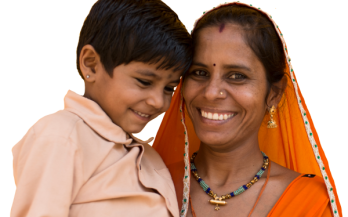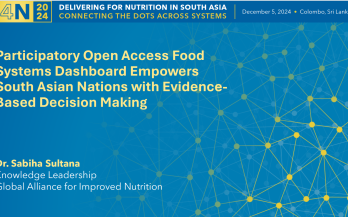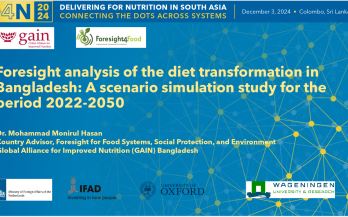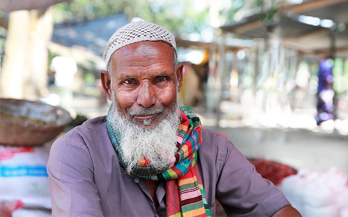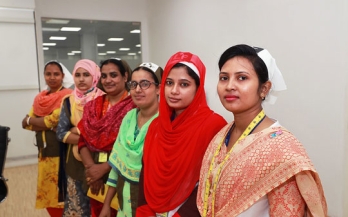- 21/10/2025
Bangladesh is redefining its path toward a more equitable, climate-resilient, and nutrition-secure future—and young people are at the centre of that journey. As the country advances major national strategies like the National Food and Nutrition Security Policy, this policy brief highlights how youth can move from community action to shaping national decision-making. It proposes creating formal youth roles in bodies such as the Bangladesh National Nutrition Council (BNNC) and District Nutrition Coordination Committees and strengthening cross-ministerial collaboration through a Youth in Food Systems Working Group. The brief also calls for expanding Department of Youth Development (DYD) programmes to include policy and governance, integrating food systems into university curricula, and building leadership pipelines through fellowships, mentorships, and digital participation tools. By positioning young people as active partners in governance, Bangladesh can cultivate a generation of leaders driving food systems transformation in line with the country’s long-term development agenda.
- 03/06/2025
The world is facing multiple interconnected crises, including climate change and escalating conflicts, which pose significant challenges to food systems. These issues highlight the need for systemic transformation to improve food security, nutrition, and environmental sustainability. In response, GAIN's Nourishing Food Pathways (NFP) programme aims to strengthen and support the implementation of food system pathways in 11 countries.
- 16/05/2025
WHA Global Nutrition Stunting Target 2012-2025
Achieve a 40% reduction in the number of children under-5 who are stunted
WHA Global Nutrition Overweight Target 2012-2025
Ensure that there is no increase in childhood overweight
- 26/12/2024
Participatory Open Access Food Systems Dashboard Empowers South
- 16/12/2024
Foresight analysis of diet transformation in Bangladesh_A scenario simulation study
- 16/05/2024
To successfully execute Bangladesh’s National Pathway for the Sustainable, Equitable and Resilient Food Systems Transformation, it is conducive for all actors in the food system to have consistent and easy-to-access data for informed decision-making. To meet this need, the Government of Bangladesh and the Global Alliance for Improved Nutrition (GAIN) in collaboration with the Columbia Climate School, FAO, different ministries including Prime Minister’s Office, Ministry of Planning, Ministry of Agriculture, and other relevant ministries, departments, agencies, development partners, academia, and private sector developed the Bangladesh Food Systems Dashboard (BDFSD) integrating national and subnational level data.
- 11/04/2023
In 2019, in an effort to improve the efficiency and sustainability of its programming, GAIN’s Workforce Nutrition Programme (WFN) shifted away from the traditional project development and evaluation cycle towards a nimbler "Quality Improvement" (QI) approach.
- 11/01/2023
As elaborated in a GAIN evidence brief, poor-quality diets and insufficient food quantity are linked to reduced work capacity. This suggests that the malnutrition burden can be partly addressed through a win-win-win approach which improves individual lives, business outcomes, and national economies.
- 15/10/2022
In 2018 GAIN Bangladesh began implementing an adolescent nutrition programme titled ‘Nourishing Dreams’. This was designed in partnership with adolescents themselves, and has at its core making a pledge to eat better and work towards improving availability of healthier food in their surroundings.
- 10/10/2022
GAIN, BRAC, SMC, Renata, a Bangladeshi pharmaceuticals company, icddr,b and the Children’s Investment Fund Foundation (CIFF), set out to evaluate whether such a programme could reach those who are vulnerable, whether they were impactful and whether they were good value for money compared to other routes to improved nutrition outcomes.
